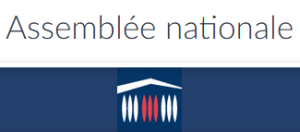Document type Answer to question n°15271 published on the website of the Assemblée nationale
Authors: question: Jorys Bovet (Rassemblement National - Allier). Answer: French Ministry of Agriculture and Food Sovereignty.
Question: Mr. Jorys Bovet seeks a response from the Minister of Agriculture and Food Sovereignty on the role of state services and elected representatives in monitoring abattoirs. For several years now, groups and associations such as L 214 have been broadcasting unbearable images of intolerable practices in abattoirs. Fortunately, these practices are not the norm in France, but are isolated cases. It should be emphasized that the vast majority of the profession scrupulously respects the health, hygiene and animal welfare rules imposed by the regulations. The most recent images, broadcast on January 18, 2024 show a cow being butchered while still alive. What kind of societies other than the most barbaric would allow this type of practice to continue in their countries? If these events are allowed to occur, it is because there is something wrong with the control system for these establishments. We need to establish who is responsible, so that we can target the culprits and provide the appropriate responses. The Deputy therefore asks the Minister for information on the role and number of veterinary surgeons present in abattoirs in France. He would also like to know what control, monitoring and sanctioning measures are available to the State for abattoirs of all types.
Answer: Slaughter conditions in abattoirs are now subject to multiple controls involving both mandatory inspections and voluntary measures implemented by abattoir operators. For example, European Regulation 1099/2009 on the protection of animals at the time of killing requires the presence of an animal protection officer who must be able to require abattoir staff to take the necessary corrective measures to ensure compliance with regulatory requirements. In addition, government officials (veterinarians and authorised auxiliary staff) regularly audit the conditions under which animals are slaughtered, report any failures of compliance and implement appropriate administrative and criminal measures. Third-party audits are also carried out on the animal welfare aspect by of slaughter by customers following commercial specification schedules. In addition, for several years now, the sector has operated a system of voluntary animal welfare audits in abattoirs, using an assessment grid developed in collaboration with animal protection associations. Last, some associations, such as the Œuvre d'Assistance aux Bêtes d'Abattoirs (OABA), have their own auditors who are invited by abattoirs to carry out an audit of slaughter conditions. It should be remembered that slaughter professionals are those primarily responsible for ensuring that animals are properly treated, supported by the mandatory duties of veterinary inspection agents concerning the on-site monitoring of abattoirs. Each animal must be inspected prior to slaughter. However, the conditions under which animals are handled, from unloading to killing, are not subject to continuous inspection by the government agencies. Compliance with animal welfare requirements is checked at least twice yearly by in-house inspection services, taking the form of comprehensive audits. In addition, internal checks carried out by operators are also audited. Last, physical checks at slaughter stations are regularly carried out. Over the past two years, additional measures have been taken by the administration to strengthen the monitoring of animal welfare compliance in abattoirs and the implementation of appropriate administrative or criminal follow-up actions, targeting those establishments whose slaughter procedures require improvement. Last, in July 2021, the Ministry of Agriculture brought in its "abattoir plan" to ensure the strict application of regulatory requirements, including those concerning animal protection during slaughter, involving support for the work necessary to improve practices [181 abattoirs received €115 million in support], the strengthening of local abattoir networks, reinforcement of controls with a rapid intervention force and generalized controls throughout France and implementation of appropriate follow-up to controls in conjunction with prefects. In order to extend this momentum, in July 2023 the Ministry of Agriculture launched an approach involving professional sectors and local authorities to preserve the relevant network at the level of each territory and thus guarantee the sustainability of livestock sectors. The 2024 Finance Act provides for the implementation of a public guarantee on €50 million in outstanding loans, to support slaughterhouses of strategic interest for a sector and/or a production area.




